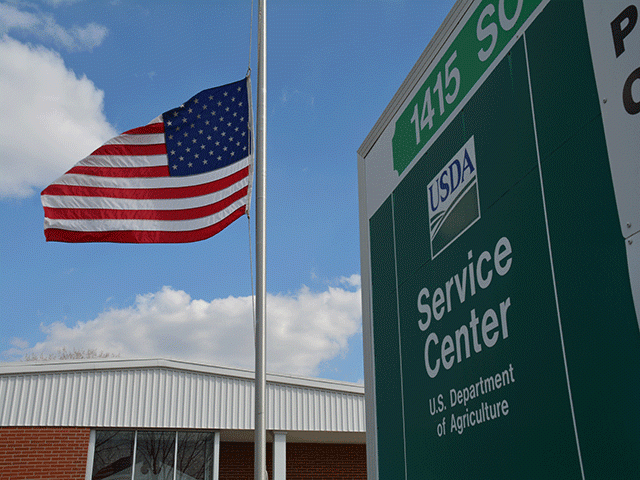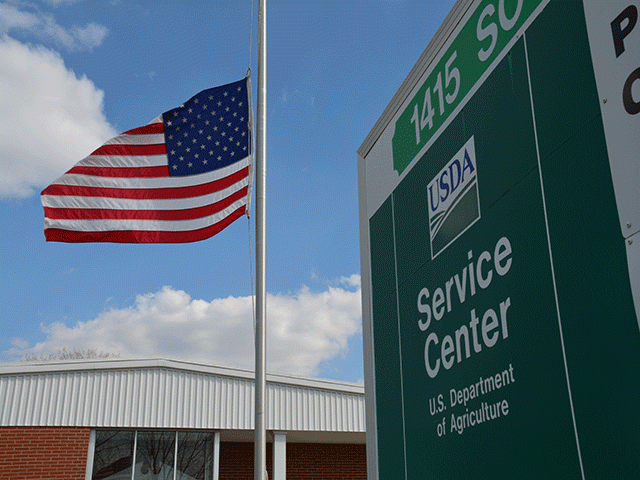Ag Policy Blog
Funding Bill Gives USDA a Seat on CFIUS for Ag Issues
The U.S. Secretary of Agriculture will finally get a seat on the Committee on Foreign Investment in the United States (CFIUS) as part of the funding package released Sunday by congressional appropriators.
After months of stalled funding bills, the chairs and ranking members for appropriations on Sunday released funding packages for USDA, FDA and related agencies, along with five other major funding bills for federal departments as well.
Congress is again under a quick deadline. The funding bills released on Sunday must be passed by March 8 or yet another stop-gap measure will be needed to avoid a shutdown.
The funding bill makes the USDA secretary a member of CFIUS when it comes to dealing with transactions involving agricultural land, biotechnology and industry. The bill also requires USDA to notify CFIUS of agricultural land transactions under the Agricultural Foreign Investment Disclosure Act that may pose a risk to national security. Under the deal, USDA receives $1 million to improve its collection and reporting of foreign transactions as well.
The CFIUS and foreign-land reporting issues have become a hot topic as lawmakers from both parties have responded to Chinese ownership of foreign land in both the federal and state levels. USDA records foreign ownership, but that typically requires those buying foreign land to submit information to USDA and it is often a paper trail. Earlier this year, it was reported that USDA missed nearly 200,000 acres of Oregon timber owned by a Chinese investor for nearly a decade.
A key point of debate in the USDA funding bill was tied to the Women Infants and Children (WIC) bill. Despite House efforts to cut WIC, the bill instead boosts the program by $1 billion for the year. The bill also does not include any new restrictions on the Supplemental Nutrition Assistance Program (SNAP).
The funding agreement touches on an array of issues, including addressing "rising cybersecurity threats to our nation's agricultural systems." The bill directs USDA to report to committees on collaborations with colleges and the department and other federal agencies to deal with threats to supply chains from foreign adversaries.
P[L1] D[0x0] M[300x250] OOP[F] ADUNIT[] T[]
In areas such as animal traceability, the bill also provides $15 million for electronic identification tags and related infrastructure to help cattle producers comply with animal traceability rules.
USDA also has 90 days to provide a plan to Congress for improving staffing at Farm Service Agency (FSA), the Natural Resources Conservation Service (NRCS) and the Rural Development mission areas at the county level, including recommendations to Congress for actions that could boost staffing levels as well. The funding deal requires USDA to prioritize staffing of positions outside of the Washington, D.C., region.
STAFFING CHALLENGES DISCUSSED AT CLASSIC
Staffing issues came up multiple times last week at the Commodity Classic meeting in Houston as USDA agency officials met with commodity groups. Members of the National Association of Wheat Growers (NAWG) said FSA offices were short-staffed and even temporary workers could not keep their jobs even though the offices were swamped with work. Zach Ducheneaux, the FSA administrator, said some of those job losses were a function of Congress not passing a budget on time.
"The reality is our money ran out at the end of last September and we've had to kick the can down the road six weeks at a time," Ducheneaux said. He added, "We don't have the money to plan for what we're going to do for the rest of the year because Congress hasn't acted on budget for 2024 yet."
Ducheneaux added the funding woes also impact pay and tenure to the point "where we have to exploit people's passion for this work because we can't properly compensate them to do it."
Later in that same meeting, Terry Cosby, the NRCS chief, also talked about staffing challenges. To implement the Inflation Reduction Act (IRA) money set aside for conservation programs, Cosby said he needs to hire more than 4,000 people over the next two years. Cosby said a problem he faces nationally is that students lack basic knowledge of soils coming out of college.
"Soils are a limiting factor," Cosby said. "For the life of me, I can't believe that colleges and universities are offering agricultural curriculum and majors don't have a soils course. Most of these students coming out of college now don't have a soils course, but they are ag majors. So, we've got to fix that because most of the time they aren't qualified to come work for NRCS in the technical positions that we have."
For full details on the funding bill, see
Senate: https://www.appropriations.senate.gov/…
House: https://appropriations.house.gov/…
Chris Clayton can be reached at Chris.Clayton@dtn.com
Follow him on X, formerly known as Twitter, @ChrisClaytonDTN
(c) Copyright 2024 DTN, LLC. All rights reserved.






Comments
To comment, please Log In or Join our Community .